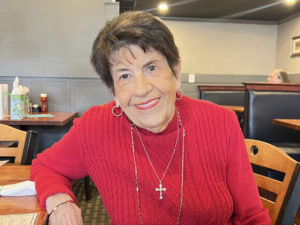Older adults were one of the last groups in the population for whom the restrictions of the pandemic were loosened, resulting in more time spent in isolation or longer periods of physical distancing. Exposure-related and quarantine measures may have had a significant impact in the short- and medium-term capacities among community-dwelling older people. It was predicted in the early weeks of the pandemic that older adults were at increased risk for poor health and psychological outcomes resulting from social isolation and loneliness. For communities that have historically lacked health care equity, such as African Americans, aging is a compounding factor that can increase vulnerability to disease and poor health outcomes.
UK College of Social Work’s Laneshia Conner, PhD, has been researching community-engaged health interventions that target older adults and is pursuing future research to connect with and support older African Americans. Conner recently presented her ongoing work at the University of Kentucky United in True Racial Equity (UNITE) research priority forum, where over a dozen UK colleagues and students joined to discuss the future of research projects. The overall goal of the UNITE Research Priority Area is to elevate impactful research on racial equity and increase racial diversity at the University of Kentucky by leveraging existing strengths and forging new relationships.
Dr. Conner’s current project will serve as a catalyst to a federally supported research study that addresses a major health disparity: HIV risk among older adults. As Americans are living longer, senior sexual health education and disease treatment is increasingly important.
“When we think of HIV, a lot of people don’t think about people who are older. There are a disproportionate number of African Americans who are affected by HIV compared to other races,” Conner said, noting that a lack of trust of health care professionals by the community has often prevented those who are affected from seeking treatment.
“There are considerations around birth control older women do not have, which can result in a lack of protection during intercourse and thus exposure to disease.” Conner said, adding that age is a contributing factor. “Sexually transmitted HIV is the number one way that women are being infected—part of fixing that is talking about what goes on below the belt.”






